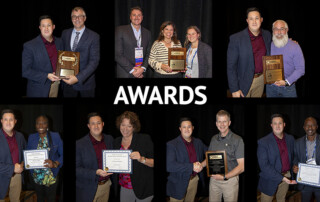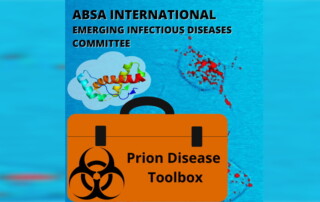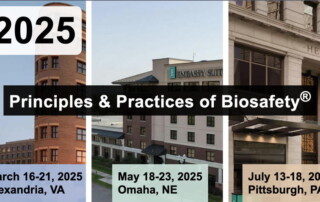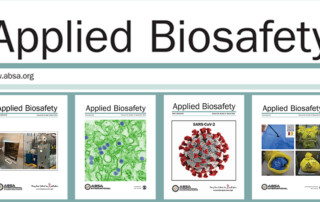ABSA International Blog
2024 Award Recipients: Honor Awards, Recognition Awards, Promotional Awards Winners
Award Recipients: Honor Awards, Recognition Awards, Promotional Awards Winners The Biosafety and Biosecurity Promotional Awards have been created to recognize ABSA International members in their efforts in promoting biosafety through marketing initiatives. A first and second place award in each [...]
Prion Toolbox: For Navigating the Challenging Field of Misfolded Proteins
Prions are misfolded proteins that defy conventional biology and are not well understood. Prions consist of proteins, lack nucleic acids, and are challenging to work with. Human prion diseases are transmissible, progressive, and cause fatal neurodegenerative disorders. Despite rare occurrences [...]
Earn CM points!
If you are seeking a resourceful and rewarding way to earn credentialing maintenance (CM) points, how about posting to the ABSA International Blog.
The blog post must provide a summary (150-180 words) of a current topic in biosafety, biosecurity, or relative topic that would be of interest to the ABSA membership. The website link for the source information must be included at the end of the blog post. Preparation for a blog post may take 30-60 minutes.
An ABSA member or a person sponsored by an ABSA Member, can earn 0.125 CM points for authoring each blog post. In a 5-year certification cycle, an individual may earn up to 1.0 CM point for up to 8 blog posts during the cycle. In addition to the benefit of earning CM points, this is a great way to share current, important information and educate others through the ABSA International Blog.
ABSA International Inclusion Statement
In alignment with our core organizational values, ABSA International (ABSA) encourages positive connections between biosafety professionals, scientists, governmental/nongovernmental organizations, and the public. It is our organization’s policy to administer all activities without discrimination on the basis of age, gender, race, religion, sexual orientation, national origin, disability, marital/familial status, and veteran status. These practices extend to all aspects of ABSA’s activities and to all roles within the association (e.g., member, ambassador, employee, mentor, sponsor, and vendor).






